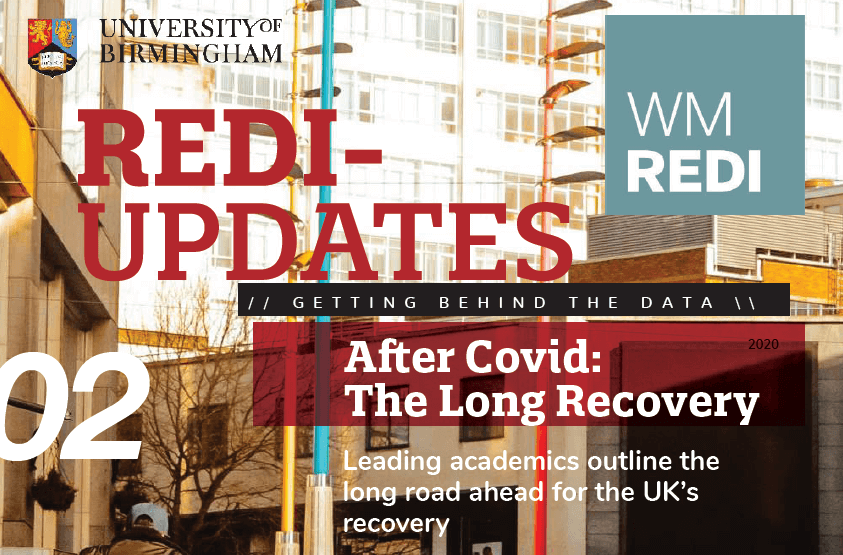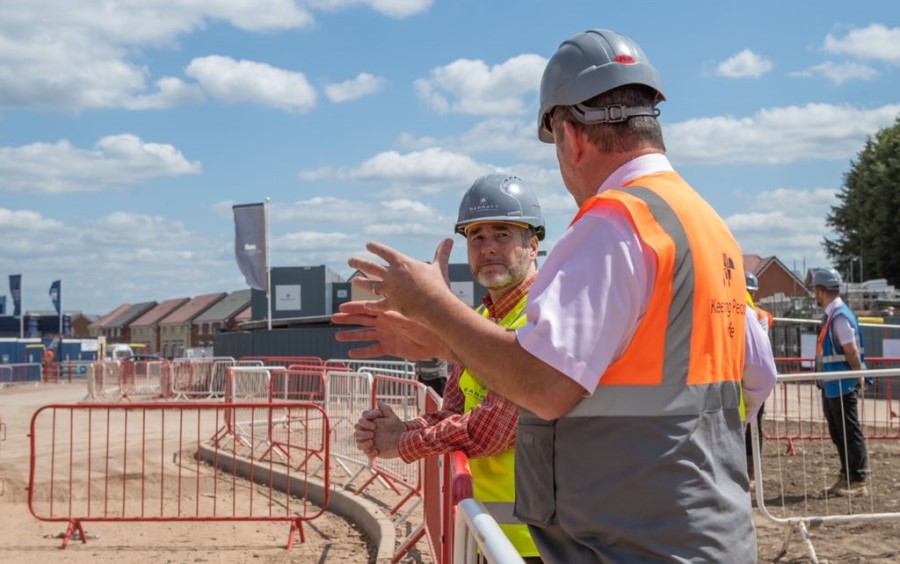 Welcome to the second edition of REDI Updates. Recently we spoke to the Rt Hon Chris Pincher MP, Housing Minister at the Ministry of Housing, Communities and Local Government, about the role housebuilding has in the UK’s recovery from COVID-19. Here’s what he said:
Welcome to the second edition of REDI Updates. Recently we spoke to the Rt Hon Chris Pincher MP, Housing Minister at the Ministry of Housing, Communities and Local Government, about the role housebuilding has in the UK’s recovery from COVID-19. Here’s what he said:
This has been the most testing period in recent history. But the hard work, perseverance and continued vigilance of all those on our economic front line have allowed us to make significant steps on the road to recovery. Delivery drivers, council workers, shop assistants. Jobs which are the backbone of our economy.
We know how important it is that people’s jobs are protected and that we offer support to people finding them. That’s why the Chancellor’s economic update was called a ‘Plan for Jobs’; a comprehensive package to get our job market back on track.
Our Job Retention Bonus will help firms keep furloughed workers, while our £2 billion Kickstart Scheme will create hundreds of thousands of jobs for young people. We’re also investing £1.6 billion in scaling up employment support schemes, training and apprenticeships.

It is a serious statement of intent to make sure people across the country – particularly young people, who are among the hardest-hit by the crisis – are assured the Government will never turn a blind eye to the threat of unemployment.
I know many readers of REDI-Updates will be only too aware of this, engaged as you are in teaching, training and employing young people in the West Midlands.
And there will soon come a new phase, one in which we rebuild – something as Housing Minister that’s never far from my mind.
Last month, the Prime Minister set out a roadmap for this. Being from Staffordshire myself, and MP for Tamworth, it came as no surprise this map has the West Midlands at its heart.
Speaking in Dudley, he set out our vision to level up and unite the country through an infrastructure and building revolution. This includes £5 billion for investment projects, including £900 million for ‘shovel ready’ local growth projects over the course of this year and next.
This will enable communities across the country to invest in the development and regeneration of key local sites, improvements in transport and digital connectivity, and innovation and technology centres that build on local strengths.
This includes up to £124 million of funding for projects across the West Midlands, and the Government is agreeing with each area the projects that will be most valuable in boosting the local economy.
This could include schemes such as Superfast Worcestershire, improving the fibre infrastructure to support technologies and applications sought after by businesses across rural Worcestershire, and the i54 business park Western Extension, which could help deliver a business site creating around 1,700 new jobs.
Midlanders are an innovative and inventive people, which is why this is about you putting your plans forward – not Government dictating them. And building the homes we need is absolutely central to this.
Last year we delivered more than 240,000 new homes across England, which is more than at any point in the last 30 years.
But we are not going to rest on our laurels. We are determined to not only build more homes but to build them in a way that is sustainable, faster.

Firstly, sustainability. The United Kingdom is the first major economy in the world to pass a net-zero emissions target into law, and I recognise the important contribution that the energy efficiency of buildings has to make in meeting it.
Our Future Homes Standard is an important part of our plan to achieve this goal. It means that from 2025, all new homes will have at least 75% lower carbon emissions and very high fabric standards – real action towards a cleaner, greener built environment.
And new homes must fit the character of their local area and help us to preserve and enhance our natural heritage. That is why we have announced £360 million of investment through our Brownfield Land Fund, which will deliver much-needed new homes while protecting greenfield sites from unnecessary development.
This includes £84 million, won by Mayor Andy Street, for the West Midlands Combined Authority, helping to unlock up to 7,500 new homes.
Of course, sustainability is not just about new homes. The Chancellor’s £2 billion Green Homes Grant scheme will fund green improvements such as loft, wall and floor insulation that could save households hundreds of pounds a year on their bills. And it will create thousands of jobs for tradespeople.
Secondly, we must build faster, and cut red tape.
We have already adapted the planning system to massively boost the hospitality sector – supporting one of the hardest-hit sectors to help business adjust to new, safer ways of working.
We have removed the need to make planning applications for outdoor markets and marquees. And we’ve also made it easier for businesses to set up outdoor seating, allowing our restaurants, pubs and bars to make the most of summer trading.
Beyond our immediate recovery, we are reforming planning to accelerate the entire system, while preserving essential checks and balances.
Last month we announced reforms to give greater flexibility for buildings and land in town centres to change use, to allow new homes to be built from the regeneration of vacant and redundant buildings, and to make it easier for homes to be extended upwards.
This month we will go further, launching a Policy Paper setting out our plan for comprehensive reform of England’s seven-decade old planning system, introducing a new approach that works better for our modern economy and society.
We are on a mission to level up our country. Get Britain building, make it greener, and make sure jobs are both plentiful and protected.
View and download the magazine.
This blog was written by Ben Brittain, Research Fellow, City-REDI / WM REDI, University of Birmingham.
To sign up for our blog mailing list, please click here.
Disclaimer:
The views expressed in this analysis post are those of the authors and not necessarily those of City-REDI / WM REDI or the University of Birmingham.
